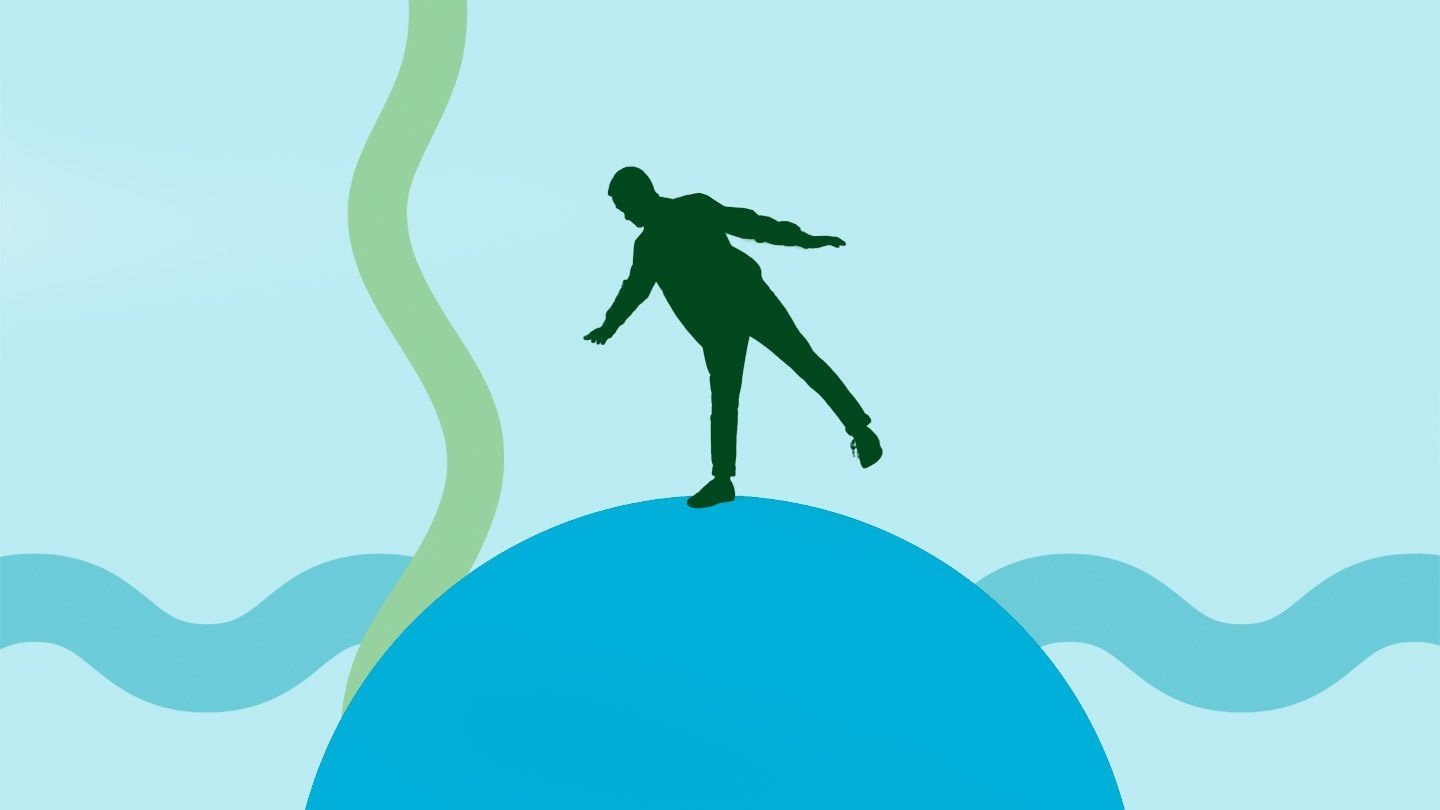
Brain Health: The Benefits of Learning How to Play Music
For many kids, learning how to play an instrument is a key part of their formative years. Not only does it help with brain development, it also helps elevate moods and reduce stress. For older adults who pick up an instrument, the list of benefits expands, including the possibility of reduced risk of dementia. Read more at The Atlantic.

Can Do at 102
We recently had the privilege of visiting Rancho La Puerta in Baja California, MX, and attended a Q&A with its 102-year-old founder, Deborah Szekely. What an amazing life she’s led, from founding the wellness retreat and spa in 1940, to establishing San Diego’s New Americans Museum and Immigration Learning Center at age 80. Her advice for staying healthy and engaged? Maintain an active social network, be positive, and just move (she still walks one mile every day)! Read more about Deborah’s remarkable story in this Fortune interview.

The Dick Van Dyke Show Lives On
To honor Dick Van Dyke’s 99th birthday, Coldplay’s Chris Martin invited the actor and comedian to join him in recording a music video of the band’s song, “All My Love.” In the 7-minute version, Van Dyke sings, dances, and shares poignant memories of his decades-long career. Happy Birthday Mr. Van Dyke, and congratulations on this cool, co-generational collaboration!
Follow the link below to watch.

Meet Beatriz Coll
Once an avant-garde punk rocker in London, then a commercial architectural photographer, and later a pediatric nurse. Bea Coll lived a lot of life before retiring to Asheville, North Carolina where she now focuses on her art, quantum physics, and becoming a death doula.

The Long and Winding Road
Might we take a different route if we knew we’d live to be 100? According to the Pew Research Center, nearly half a million Americans are expected to live to at least 100 years of age by 2050—that’s quadruple the current number of centenarians. Laura Carstensen, founder of Stanford University’s Center on Longevity, suggests we need to rethink our traditional pathways to optimize this new-found longevity. For example, she suggests making childhood longer, or working less while rearing children and more later in life instead of retiring. Read on for more innovative ideas.

Spotlight on: “The Later Daters”
Michelle Obama’s new docuseries follows six older adults, ages 56 to 71, as they wade back into the dating pool. Helping them stay afloat are their children, close friends, and a relationship expert. Does dating get easier as one ages? No, but there can be some unexpected rewards. Streaming now on Netflix.

Pragmatism + Optimism = 102 and Still Going Strong
Meet Hilda Jaffe, 102, who defies age and is the veritable embodiment of a ‘superager.’ As the Washington Post reports, at age 88, Jaffe decided to turn the page and start a new chapter, selling her home in New Jersey and moving to Manhattan, taking up residence in the Hell’s Kitchen neighborhood. More than a decade later, she is still actively enjoying the easy walks to grocery stores, seeing opera, and living independently in the city that never sleeps. According to Sofiya Milman, director of human longevity studies at the Institute for Aging Research at Albert Einstein College of Medicine, superagers typically have a very positive outlook on life, with built-in resilience. Read on to learn more about Jaffe’s approach to life and what studies of other superagers reveal.

A More Resilient Brain and the Science of Longevity
It’s not too late to register for the Buck Institute’s December 11th Seminar on Aging. Tickets are still available for joining via Zoom. And, while you’re at their site, you can also get a leg up on January’s seminar.
First up, this Wednesday, Tara Tracy, PhD, will be highlighting how clearing a toxic protein in the brain can help promote the resilience of synapses, which send information between neurons. Already successful with restoring memory in mice, her focus offers great promise.
Kicking off the new year, Eric Verdin, MD, will lead a talk centered around the evolving science of longevity, parsing out what is fact versus fiction. That seminar will take place January 8, 2025.

You Know “the talk” You’re Dreading? It’s Time.
According to a study by VITAS Healthcare, only 22% of the U.S. population has an end-of-life plan in place. While American culture treats death as a taboo subject, it’s an inevitability for all of us. Discussing and documenting decisions around dying can strengthen familial relationships, and is a gift to loved ones. Read about how to take the first steps in initiating this important talk.

A New Vision for a Less Ageist Society
Join the Stanford Center on Longevity for Century Summit V taking place January 22-23, 2025, in person at Stanford University, and online via a virtual platform. The conference will focus on the challenges of ageism, and the importance of bringing generations together to create a more inclusive society. Guest speakers include Anne Lamott, Louise Aronson, and Ashton Applewhite. The conference is free of charge, but in-person attendance is by invitation or application only. Follow the link below to learn more.

A Friendship for the Ages, and Across All Ages
Andrea, 82, met Angelo, 16, through the nonprofit, Dorot, a Hebrew word meaning “generations.” Both cite the benefits of their intergenerational friendship, with Angelo, noting, “You get to…even learn from their experiences and get really great advice.” More organizations are connecting teens and elders as a way to address the loneliness epidemic, an ongoing trend exacerbated by the pandemic.

Inside Ted Danson’s New Netflix Series
Cheers to Danson & Co. for creating a show that doesn't shy away from the topic of aging. “A Man on the Inside” is a comedy, but one that also highlights some weighty themes, including the fact that life doesn’t stop just because you get older. Streaming now.

Words Matter
Attendees at the annual Gerontological Society of America (GSA) conference took a deep dive into how words can propagate ageism and bolster negative stereotypes of older adults. Actions included analyzing 62 million social media posts on the platform X for ageist terminology, and examining how older characters are described in children’s books. One notable, concrete effort was petitioning two of the world’s most respected dictionaries—Oxford English Dictionary and Merriam Webster—to update their definitions of ageism to encompass a broader description of who is impacted. Results TBD.

What We’re Reading this Week: “The Second Fifty: Answers to the 7 Big Questions of Midlife and Beyond”
Author Debra Whitman, an economist and aging expert, offers a roadmap for living a healthier and more meaningful second half of life. Two key insights:
Mind Over Matter – Yes, healthy habits are critical to longevity, but mindset has a significant impact as well. Researchers found that those with positive attitudes of aging can live more than seven years longer than cohorts with negative outlooks.
Older Workers Are a Force – More older Americans are working than ever before, and contrary to what many believe, studies show they are a benefit to the economy and to their employers, activating both productivity and innovation.

The Keys to Aging Well? Self Care and Attitude
In a recent survey by the New York Times, more than 3,100 participants shared how their form of self care has evolved as they’ve aged. Focusing on six older Americans and their lifestyles, the Times delves into how aging impacts individual views on aging and staying vibrant.

Staving Off Loneliness with Intergenerational Relationships
"What is the Intergenerational Future?" On November 14th @ 12PM PT, join the Stanford Center on Longevity for its final webinar on ageism. Experts will discuss how fostering intergenerational relationships can combat loneliness, and create more empathetic, productive communities.

Rebranding the Senior Center
Think senior centers are all about bingo, bland food, and boring TV? Well, think again. Galvanized by a demographic evolution—specifically, a large swath of adults living longer, more active lives, today’s senior centers are dropping the word “senior” from their names, and offering pickleball, tech labs, speed dating, and more.

The Mechanisms of Brain Aging
In this month’s Live Better Longer Community Seminar Series from the Buck Institute, geroscience experts examine the innovations and interventions extending human healthspan. Next up on November 6th (in person and on Zoom): “The Mechanisms of Brain Aging,” led by Ashley Webb, PhD, Buck Professor.

Getting a Leg up on Aging
It all begins with an idea. Maybe you want to launch a business. Maybe you want to turn a hobby into something more. Or maybe you have a creative project to share with the world. Whatever it is, the way you tell your story online can make all the difference.
Don’t worry about sounding professional. Sound like you. There are over 1.5 billion websites out there, but your story is what’s going to separate this one from the rest. If you read the words back and don’t hear your own voice in your head, that’s a good sign you still have more work to do.
Be clear, be confident and don’t overthink it. The beauty of your story is that it’s going to continue to evolve and your site can evolve with it. Your goal should be to make it feel right for right now. Later will take care of itself. It always does.

Is There a Cure for Loneliness?
In Season 6 of the Stanford Center on Longevity’s podcast, “Century Lives,” host Ken Stern explores “The Century Club,” a collective of nations focused on societal solutions to aging and longevity, particularly those addressing loneliness. Traveling the world, Ken learns how other countries are confronting social isolation, perhaps the number one detriment to healthy aging, and an issue largely ignored in the U.S. Subscribe and/or follow the link below.
